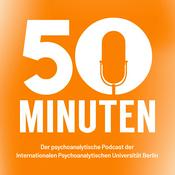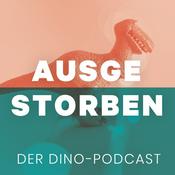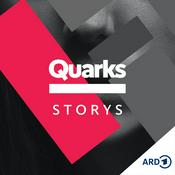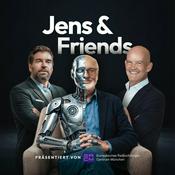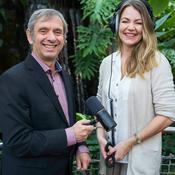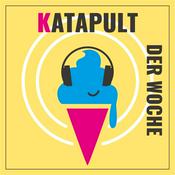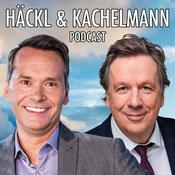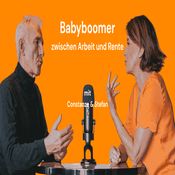171 Episoden
- Marginalia Episodes are in collaboration with Marginalia Science! Marginalia Science is a community committed to promoting the work of scholars who are traditionally underrepresented in academia. In each Marginalia Episode, we feature a guest who has been featured in the Marginalia Science Monthly Newsletter.
In this re-air episode from 2025, Enna chats with Professor Erica Bailey at UC Berkeley Haas School of Business. Erica broadly studies the construct of authenticity, asking questions like, how do we know who we are? When do we feel the most like ourselves? Why do we often fail, despite our best efforts, to share our inner world with others? In this episode, we discuss her recent paper on how self-perceptions influence subjective authenticity. To learn more about Erica, you can read the Marginalia Science Newsletter below.
Episode on Marginalia Science: https://www.stanfordpsychologypodcast.com/episodes/episode/7927b876/104-special-episode-marginalia-science
Marginalia Newsletter featuring Erica: https://substack.com/home/post/p-153969383
Erica’s Paper: https://osf.io/preprints/psyarxiv/9tc27
Erica’s Website: https://sites.google.com/view/ericarbailey
Erica’s LinkedIn: https://www.linkedin.com/in/erica-bailey-ph-d-22038172/
Erica’s Twitter: @ericarbailey
Enna’s LinkedIn: https://www.linkedin.com/in/ennayuxuanchen/
Enna’s Twitter: @EnnaYuxuanChen
Podcast Twitter: @StanfordPsyPod
Podcast Substack: https://stanfordpsypod.substack.com/
Podcast Contact: [email protected] - Adani chats with Tamar Kushnir, Professor of Psychology and Neuroscience at Duke University. Tamar’s research spans pretty much everything you can imagine: Cognitive development, causal learning, social cognition, moral cognition, cultural psychology, free will, imagination, counterfactual thinking, self-control, and more! In this conversation, we discuss Tamar’s fascinating review on imagination and social cognition in childhood alongside many fun tangents about superheroes, the Wright Brothers, and collective social change. Tamar also shares what she most enjoys about research in the first place, and what she’s excited for next!
Tamar’s faculty webpage: https://dibs.duke.edu/profile/tamar-kushnir/
Tamar’s lab website: https://ecclabduke.com/
Tamar’s paper: https://doi.org/10.1002/wcs.1603
Adani’s website: https://www.adaniabutto.com
Adani’s Bluesky: @adani
Podcast Twitter @StanfordPsyPod
Podcast Substack https://stanfordpsypod.substack.com/
Let us know what you thought of this episode, or of the podcast! :) [email protected] - In this re-air episode from 2022, Eric chats with Robin Dunbar, Emeritus Professor of Evolutionary Psychology at Oxford. Robin has famously studied the evolution of the human brain, arguing that our brain developed to understand the complex social world we have created for ourselves. Most know him for “Dunbar’s number,” or the limit to the number of individuals we can maintain stable relationships with. Robin has received more awards than could be counted, including the prestigious Huxley Memorial Medal. He has written various books, most relevant for this conversation a book called “Friends: Understanding the Power of our Most Important Relationship.”
In this wide-ranging episode, Eric and Robin discuss why Dunbar’s number is actually a whole series of numbers. Robin explains how he arrived at this number, why it is so relevant to everything from our globalized world and big cities to maintaining friendships. Do psychopaths need friends to be happy? If you don’t like people, should you move into the woods and never talk to anyone again? He explains why we gossip and what makes something funny. Finally, he shares some personal stories about his career and why his discovery of Dunbar’s number was actually an accident.
Links:
Robin's Friendship book: https://www.barnesandnoble.com/w/friends-robin-dunbar/1138785864
Robin's most recent book on religion: https://www.penguin.co.uk/books/316135/how-religion-evolved-by-dunbar-robin/9780241431788
Eric's website
Eric's Twitter @EricNeumannPsy
Podcast Twitter @StanfordPsyPod
Podcast Substack https://stanfordpsypod.substack.com/
Let us know what you think of this episode, or of the podcast! :) [email protected] 167 - Nicky Sullivan: Bridging the Gap Between Academic Research and Real-World Impact
08.1.2026 | 38 Min.Anjie chats with Dr. Nicky Sullivan, senior researcher at Impact Justice, a national non-profit innovation and research center focused on transforming the U.S. criminal justice system. Dr. Sullivan received his PhD from Stanford Psychology Department in 2024. During his PhD, he studied parents' and children's beliefs about race and racial inequality. In this episode, Nicky shares his journey from studying race in the lab to evaluating innovative initiatives like The Homecoming Project at Impact Justice. He offers practical advice for grad students on networking, while reflecting on the challenges of pursuing system reform in today’s shifting political landscape.
If you found this episode interesting at all, subscribe on our Substack and consider leaving us a good rating! It just takes a second but helps us reach more people and get them excited about psychology.
Links:
Nicky’s linkedin: https://www.linkedin.com/in/nicky-sullivan-phd/
Impact Justice: https://impactjustice.org/
Anjie’s website: https://anjiecao.github.io/
Podcast X @StanfordPsyPod
Podcast Substack: https://stanfordpsypod.substack.com/- Su chats with Dr. Steve Rathje. Dr. Rathje is an incoming Assistant Professor of Human-Computer Interaction in the School of Computer Science at Carnegie Mellon University. He is an NSF and AXA postdoctoral fellow at New York University. Steve’s work centers on the psychology of technology. He studies how core psychological phenomena like polarization, intergroup conflict, the spread of information, and mental health interact with emerging technologies such as artificial intelligence and social media. Through a combination of behavioral science, computational methods, and large-scale data, his research sheds light on how our minds and our societies are being shaped in the digital age. In today's episode, we discuss his research background together with his recent review paper “The psychology of virality," in which they explore why certain content spreads rapidly online and offline, often involving a mix of emotional, social, and structural factors..
Steve’s paper: https://doi.org/10.1016/j.tics.2025.06.014
Steve’s personal website: https://stevenrathje.com/
Su’s Twitter @sudkrc & Bluesky @sudkrc.bsky.social
Podcast Twitter @StanfordPsyPod
Podcast Substack https://stanfordpsypod.substack.com/
Let us know what you thought of this episode, or of the podcast! :) [email protected]
Weitere Wissenschaft Podcasts
Trending Wissenschaft Podcasts
Über Stanford Psychology Podcast
The student-led Stanford Psychology Podcast invites leading psychologists to talk about what’s on their mind lately. Join Eric Neumann, Anjie Cao, Kate Petrova, Bella Fascendini, Joseph Outa and Julia Rathmann-Bloch as they chat with their guests about their latest exciting work. Every week, an episode will bring you new findings from psychological science and how they can be applied to everyday life. The opinions and views expressed in this podcast represent those of the speaker and not necessarily Stanford's. Subscribe at stanfordpsypod.substack.com. Let us hear your thoughts at [email protected]. Follow us on Twitter @StanfordPsyPod. Visit our website https://stanfordpsychologypodcast.com. Soundtrack: Corey Zhou (UCSD). Logo: Sarah Wu (Stanford)
Podcast-WebsiteHöre Stanford Psychology Podcast, IQ - Wissenschaft und Forschung und viele andere Podcasts aus aller Welt mit der radio.de-App

Hol dir die kostenlose radio.de App
- Sender und Podcasts favorisieren
- Streamen via Wifi oder Bluetooth
- Unterstützt Carplay & Android Auto
- viele weitere App Funktionen
Hol dir die kostenlose radio.de App
- Sender und Podcasts favorisieren
- Streamen via Wifi oder Bluetooth
- Unterstützt Carplay & Android Auto
- viele weitere App Funktionen


Stanford Psychology Podcast
Code scannen,
App laden,
loshören.
App laden,
loshören.























